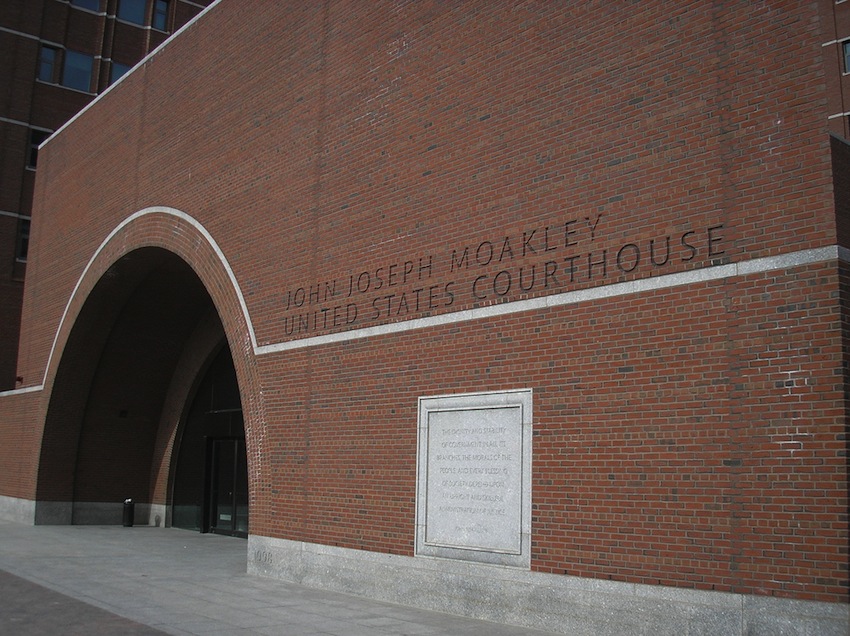The Boston Bar Association Still Doesn’t Agree With the Death Penalty

Moakley Courthouse Photo Uploaded by UkemeE on Flickr
The Boston Bar Association took a strong stance against the death penalty on a federal level in a new report released by one of its working groups tasked with examining the subject with a fine-toothed comb.
This is what they came up with: Capital punishment cases are rife with wrongful executions and evidence of racial discrimination.
“And the expense of death penalty prosecutions is staggering,” the report said, adding that these specific concerns have led a number of states, including New York, New Jersey, and New Mexico, to abandon the death penalty in the past 10 years.
In the lengthy report published on Tuesday titled “The BBA and the Death Penalty,” assembled by the BBA’s Death Penalty Working Group, they reaffirmed a position they’ve held for the last four decades and flaunted their constant role in submitting their opinion on amicus briefs, testimony before the legislature, and public statements for the press.
While the news of their latest position on the subject of putting to death criminals that commit certain crimes isn’t necessarily a surprise, the aggressive nature of their opposition, matched with the timing of one of the most-watched federal cases—the consideration and discussion of whether or not Boston Marathon bombing suspect Dzhokhar Tsarnaev should face capital punishment—is what stands out.
“The BBA has not hesitated to speak out about capital punishment, even when horrific crimes have prompted public calls to revive the death penalty, and opposition to the death penalty is unpopular. Indeed, that is when the BBA has spoken most clearly,” the report said. “[But] before today, the BBA has never spoken directly about the federal death penalty.”
The death penalty is not allowed at a state level in Massachusetts, but can be pursued in federal cases through the Federal Death Penalty Act under special circumstances. Tsarnaev’s indictment is one of those special cases being explored. A decision from federal officials on whether they will call for capital punishment is expected sometime in January.
Since 1994, the Department of Justice has sought the death penalty in three Massachusetts cases.
“The death penalty is fundamentally inconsistent with the fair administration of our system of justice,” the group wrote in their opening remarks of the report. They also noted that data shows relying on the death penalty can lead to the execution of innocent people and minorities or people of color at a vastly disproportionate rate.
The BBA, which represents around 10,000 lawyers from around the state, applauded the state legislature’s continued success to keep attempts of reviving the death penalty at bay in Massachusetts.
“The BBA now, as then, asks all public-minded women and men to recognize that capital punishment is simply too fraught with peril—too likely to lead to the execution of the innocent, too likely to result in discrimination against racial and ethnic minorities, and too expensive and time consuming—to deserve their support,” the report said.


